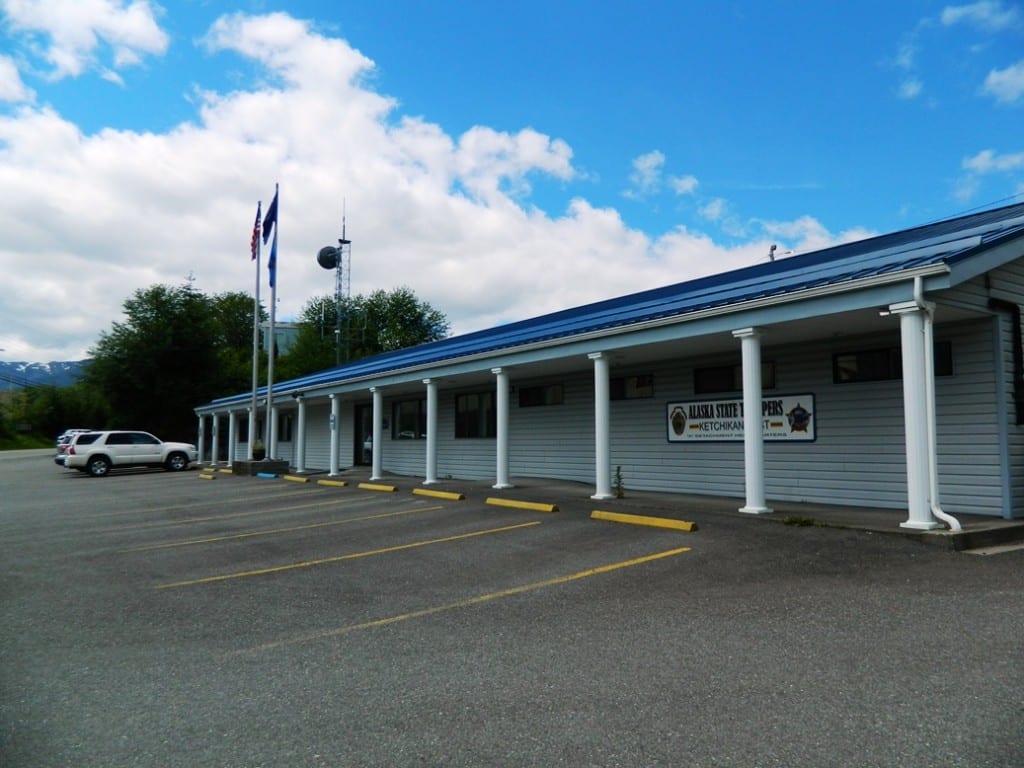
Local officials are pushing back against a plan to close Ketchikan’s state trooper dispatch center, and to relocate its seven staff to Anchorage. The plan — which also includes transferring dispatchers in Wasilla and Soldotna — was the subject of much concern at the latest meeting of the Ketchikan Borough assembly, whose mayor believes that centralizing dispatch operations could leave Southeast communities high and dry in a disaster.
The Alaska Department of Public Safety told Ketchikan Gateway Borough staff in late November that it intends to close the local state trooper dispatch center. It plans to transfer the seven dispatchers currently located in Ketchikan to a new facility in Anchorage by July of 2021.
Those dispatchers take calls from the public and relay them to nearby state troopers.
The planned closure is part of a wider effort to centralize dispatch operations. State troopers also plan to close dispatch facilities in Wasilla and Soldotna as part of the reorganization. Early estimates put the cost savings at nearly $1 million.
But one local official says relocating trooper dispatch facilities to Anchorage could have dire consequences in a disaster.
“It’s obviously a concern for us because it affects our citizens, represents a loss of state jobs on our island, could potentially diminish services, especially emergency response capabilities,” said Ketchikan Gateway Borough Mayor — and former state trooper — Rodney Dial during a Dec. 2 borough assembly meeting. He said that local knowledge is important for regional dispatchers as they assist troopers in responding to emergency calls.
He also said the dispatch center in Ketchikan serves as an important backstop in case a disaster — like an earthquake — takes the Anchorage dispatch center offline.
Dial said that the Ketchikan facility also has the ability to facilitate radio communications with local troopers even if the statewide radio network is disrupted.
“Additionally, Ketchikan is equipped with its own separate radio system at the Trooper station in case the network, which is called the Alaska Land Mobile Radio System, were to fail,” he said.
That comes as the Coast Guard struggles to restore emergency maritime radio communications in some corners of Southeast. The vital VHF channel 16, which allows mariners to call the Coast Guard for help, has experienced scattered outages throughout Southeast since June.
While troopers use a separate radio system, Dial says the local Ketchikan radio network is a good backup in case disaster strikes.
“It’s kind of a ‘don’t put all your eggs in one basket’ approach,” he said.
Troopers don’t see it that way. They say that there’s another dispatch center in Fairbanks currently being upgraded to handle statewide dispatch.
In an emailed response to KRBD’s request for comment, trooper spokesperson Megan Peters wrote that local knowledge isn’t essential to quality dispatch services — for instance, Fairbanks dispatchers take calls from Kodiak Island and many places in Western Alaska.
In addition to the projected cost savings, the email goes on to state that relocating dispatch services to Anchorage would make it easier for the state to hire new employees, since the applicant pool would be much larger.
Dial says he’s hoping to keep at least one dispatcher in Ketchikan to serve as an emergency backup. He says he’s working with Ketchikan’s state legislative delegation to keep the facility open.








